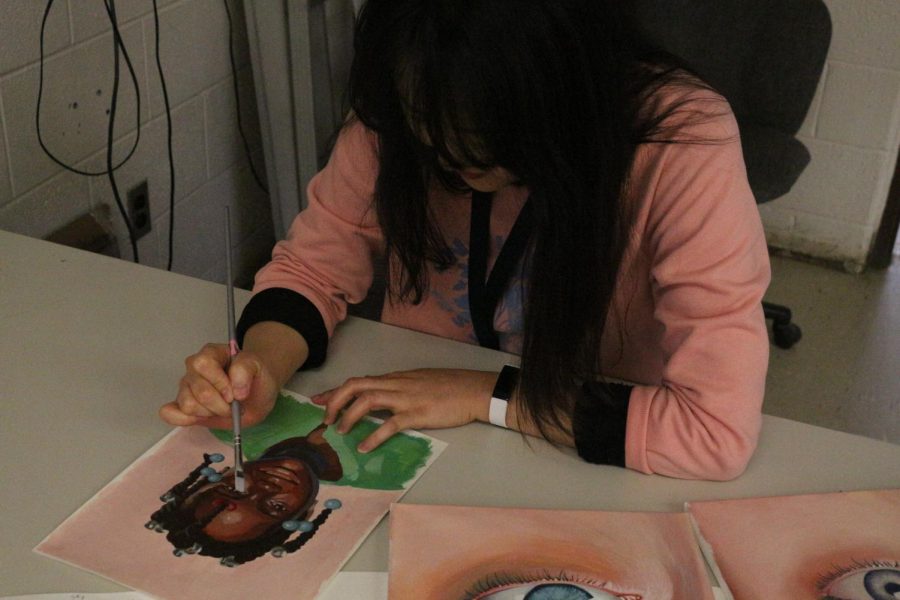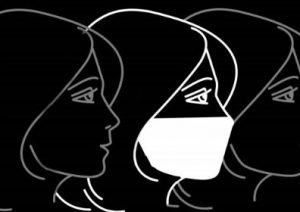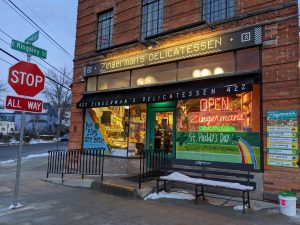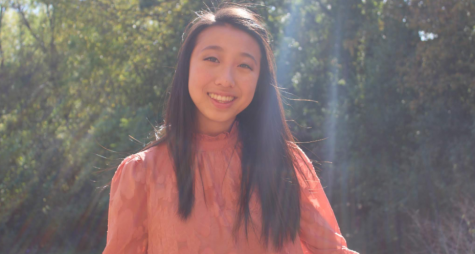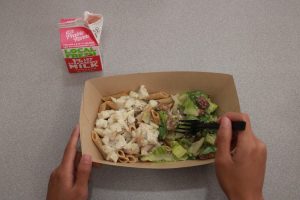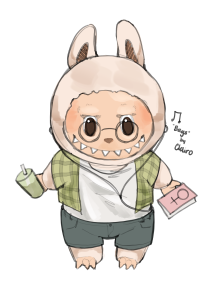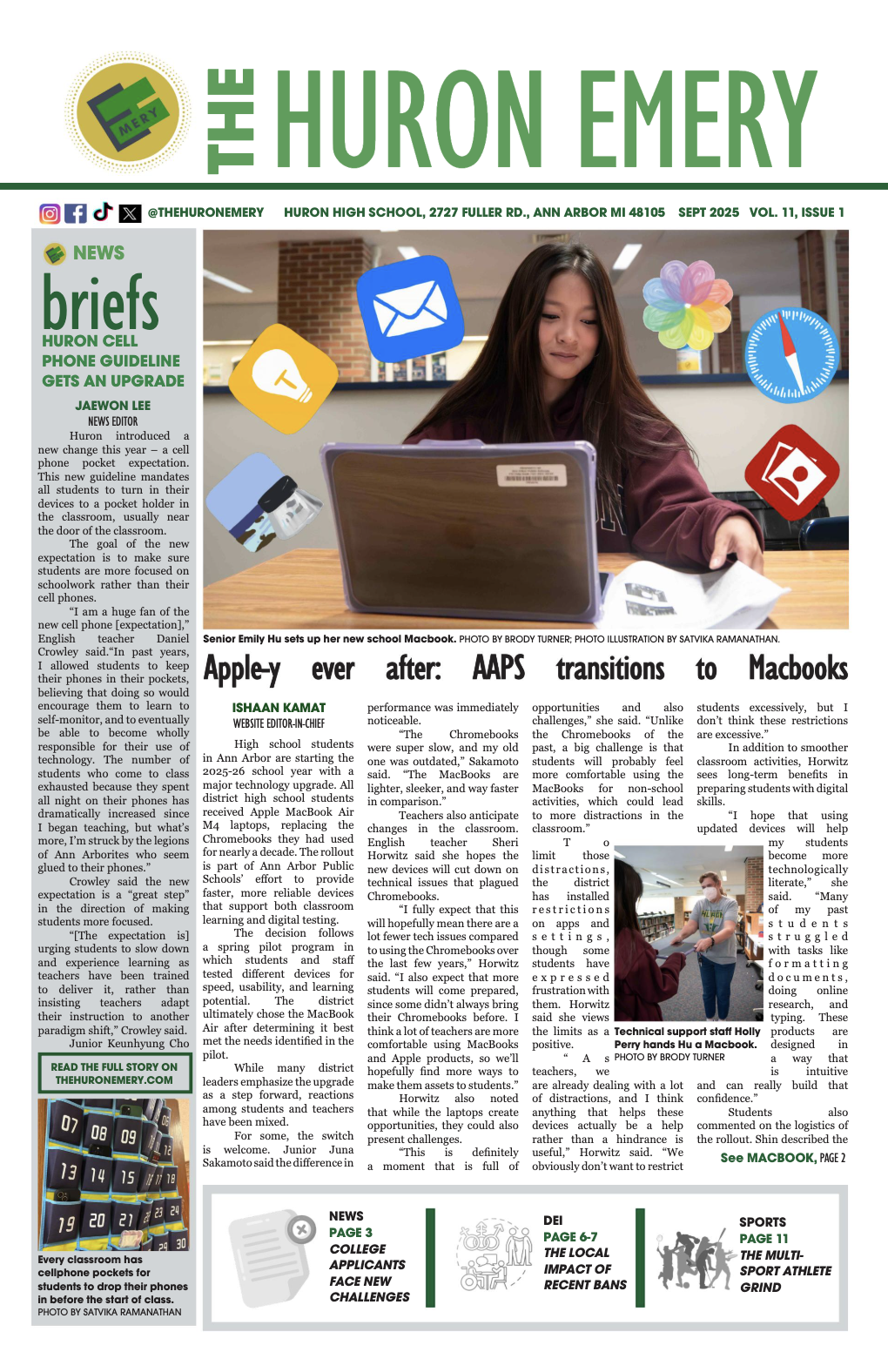Portraits of love
Seyeon Kim’s adoption fundraising journey
May 12, 2020
Soyeon Kim loves people. That’s probably why she’s a teacher — she loves people and the connections she can make with them.
“If it doesn’t happen, I get depressed and lonely,” Kim, a Huron art teacher, said. “Not that I can make strong relationships with everybody at once. But [having] strong relationships at any moment is very, very important to me.”
And that’s what she strives for. As a teacher, she loves to meet and raise students.
“But my impact is very minimal or small and short-term, and I don’t like that short term relationship,” said Kim, who only teaches semester courses. “Four months is everything I have. As soon as I feel like I connect, they leave.”
So the way Kim sees it, the most meaningful thing in life is to raise a human being. “Whenever I deal with mothers and fathers, parents in general, I get touched by their commitment, passion and compassion,” Kim said. “And that love. That unconditional love.”
She sees it whenever she talks to parents — with students’ parents at parent-teacher conferences, with her friends who are parents, everywhere.
“The way they articulate their children and the way they care for their children? It’s touching,” Kim said. “I admire those parents. And that’s another huge part of me that wants to be a parent.”
That road has not been easy. By 2015, Kim had had a couple of miscarriages. After consulting a fertility doctor, she and her husband Brandon were considering in vitro fertilization (IVF), the artificial fertilization of eggs and sperm outside the body.
At the same time, her husband was studying at the Calvin Theological Seminary in Grand Rapids. Coincidentally, for his pastoral examination, he received a case study about IVF.
“[N]ormally they make way more embryos than they need because the success rate is so low. And then once they are successful with the first few, then what do you do with the rest of them?” Kim explained. “[In the case study,] the female partner said, ‘I treat them as children.’ And the male partner said, ‘Just mere cells. We can just throw them away.’”
As Kim and her husband started looking into this case study, it got her thinking. There are plenty of children who need homes. Is it really important for us to have biological children?
“I have been a teacher for a long time,” Kim said. “So I see all the children, thinking, ‘What if this is my child? What if that is my child?’”
She found that she was willing to accept anyone as her child.
“As long as we build a relationship, I think it’s okay that it’s not a biological child.”
When adopting internationally, Kim said the adoption agency advised adoptive parents to learn and educate the child about their culture of origin. That’s why they’re looking to adopt from Korea.
“We both are Korean and [it] would be natural to raise the child in Korean culture,” Kim said.
The adoption process is long and tedious. As part of a home study, prospective parents undergo countless background checks and examinations and interviews with social workers, arrange extensive legal documentation, study online training courses and write essays.
“At one point, we were given a list of all these illnesses that a child can potentially have, and then we had to check off if we’re willing to accept it [and to] how severe a degree,” said Kim, who consulted a doctor to understand it better. “That was a very difficult process because some diseases were more severe. Like, heart defects are very common in children in South Korea. So it’s kind of like a process, mental preparation for us.”
Now, adopting a child can be expensive. Adopting internationally from Korea, which requires additional processing and travel fees, can cost nearly $50,000.
“We saved $10,000, but it still wasn’t enough. Not even close,” said Kim, who has been saving for over three years now. “We’re fundraising about $30,000 and then hoping we can loan another $10,000.”
As part of the fundraiser, Kim opened commissions for portraits.
“I didn’t even expect anybody would be interested. Maybe one or two people,” Kim said. “I was kind of hesitant to [open commissions], because I’ve never sold [or] charged anyone for my work.”
Within a day, she received two requests.
“So I drew those two and [posted them] on Facebook,” Kim explained. “And every time I post a new drawing on Facebook, I always get more requests and more requests.”
So far, Kim has finished 17 portraits and has 31 more requests lined up. Portraits, which start at $100 and go up to $300 depending on the medium, size and number of subjects featured, take at least ten hours to finish.
“$100 for 10 hours, I get $10 [per hour],” Kim said. “So it’s minimum wage, right? I am not trying to make profit out of anybody. If it wasn’t for fundraising, I probably would have not done this.”
When she first opened the commissions, Kim would draw for five hours straight, examining photos from different angles, analyzing poses and expressions to capture a model’s essence.
“It’s intense,” Kim said. “My eyes hurt. My neck hurts. My head hurts. It’s a lot of work.”
Now, she works on the portraits for two or three hours each day after work, rotating among several so she can keep her eyes fresh. She’s adding color and calligraphy and backgrounds and finding ways to add her own creative style.
Even better, she is touched by the stories of people who commission portraits from her.
One person wanted a portrait of his mother, whom he never met after she divorced his father. He didn’t have a picture of her, save a very old, very pixelated, very blurry photo from his uncle.
“I don’t know him,” Kim said. “I’ve never met him. [But] I think that story was something very rewarding. I just love that connection and recognition and relationship and…people’s stories.”
Which is why, as she waits for a child to be referred for adoption from Korea, she will continue to draw these portraits — Christmas gifts from a wife to her husband, surprise Valentine’s gifts from a boyfriend to his girlfriend. Gifts for a parent, or a child, or a grandparent or a grandchild.
“People don’t request their self portrait,” Kim said. “It’s never a self thing. It’s always somebody else and gifts. And I think that’s very important to me.”
All these stories strengthen her determination to be a good mother.
“I know the stories of hard things parents go through — every parent, no matter how good the child is,” Kim said. “It doesn’t matter. If the child is sick, your heart aches. If the child is going through some relationship problems, your heart aches. Life is hard.”
Kim pauses.
“But I just want to do something good. Something meaningful.”
Visit the Kim’s GoFundMe to support their adoption.



